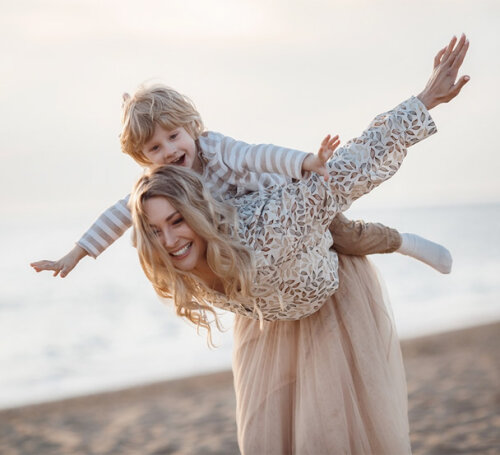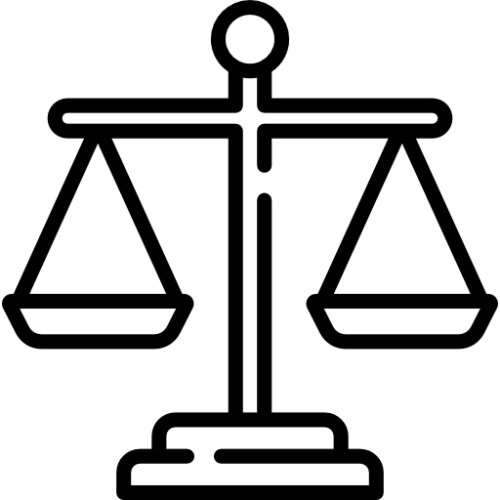Best Child Abuse Lawyers in Arrecife
Share your needs with us, get contacted by law firms.
Free. Takes 2 min.
Free Guide to Hiring a Family Lawyer
List of the best lawyers in Arrecife, Spain
About Child Abuse Law in Arrecife, Spain
Child abuse is a serious criminal and social issue in Arrecife, Spain, as it is throughout the country. Spain maintains strict laws to protect minors from harm, exploitation, neglect, and all forms of physical or psychological abuse. In Arrecife, which is part of the Canary Islands, these laws are enforced by both local authorities and national agencies. The Spanish Penal Code defines and penalizes various forms of child abuse, while the regional government aligns with the national framework to support child protection and promote the welfare of minors.
Why You May Need a Lawyer
Seeking the advice of a specialized lawyer is crucial in child abuse cases for a number of reasons. Child abuse matters can be highly complex, involving criminal, civil, and family law. Common situations where legal help is essential include:
- Reporting and prosecuting suspected abuse against a minor
- Navigating police and social service investigations
- Responding to false or malicious accusations of child abuse
- Pursuing restraining orders or protective measures
- Dealing with custody, guardianship, or visitation rights in cases where abuse is alleged
- Understanding your rights and the child’s rights during court proceedings
- Securing access to psychological or social support for the victim
A qualified lawyer can guide you through the legal process, protect your interests, and ensure the best outcome for the child’s well-being.
Local Laws Overview
In Arrecife, child abuse is primarily governed by the Spanish Penal Code, national child protection laws, and regional legislation in the Canary Islands. Some of the key aspects include:
- Definition of Child Abuse: The law covers acts of physical and psychological harm, sexual abuse, neglect, exploitation (including online exploitation), emotional abuse, and exposing a minor to dangerous situations.
- Reporting Obligations: Professionals working with children, such as teachers, health care workers, and social workers, have a legal duty to report suspected abuse. Citizens are also strongly encouraged to report any suspicions.
- Protective Measures: Spanish authorities can impose protective orders, remove children from harmful environments, and provide police support when necessary.
- Legal Proceedings: Child abuse cases are handled by specialized courts if necessary, and the child’s welfare is always the primary consideration. Legal representation is highly recommended for both victims and accused parties.
- Penalties: Convictions for child abuse can result in significant prison sentences, loss of parental rights, restraining orders, and mandatory participation in rehabilitation programs.
- Support Services: The local government and national organizations provide psychological care, shelters, and social services as support for abuse victims.
Frequently Asked Questions
What counts as child abuse under Spanish law?
Child abuse includes physical violence, verbal and emotional abuse, sexual abuse, neglect of basic needs, exploitation, and exposing a child to dangerous or traumatic situations.
How do I report suspected child abuse in Arrecife?
You can contact the local police, social services, or child protection agencies. Reports can be made anonymously and will trigger an official investigation.
Will my identity be protected if I report abuse?
Yes, authorities take measures to protect the identity of individuals who report suspected child abuse, especially when there is a risk of retaliation.
What happens after I report child abuse?
Authorities will investigate the situation, assess the child’s safety, and may take immediate protective actions if needed. Further steps may include legal proceedings against the alleged abuser.
Can a parent lose custody over allegations of abuse?
Yes, if there is credible evidence, a parent or guardian can lose custody or visitation rights temporarily or permanently, depending on the case.
What are the penalties for child abuse in Arrecife?
Penalties can include prison sentences, fines, restraining orders, loss of parental rights, and mandatory rehabilitation. The severity depends on the nature and circumstances of the abuse.
Do children have to testify in court?
The Spanish legal system aims to protect children from additional trauma. Children may provide testimony through video recordings, psychologists, or in safe settings rather than in the main courtroom.
Can false accusations of child abuse be prosecuted?
Yes, making a false accusation is a criminal offense in Spain and can result in prosecution, fines, or imprisonment for the accuser.
Is there legal aid available for victims of child abuse?
Yes, victims and their families may be entitled to free legal aid depending on their financial circumstances and the severity of the situation.
What support services are available for abused children?
Children and families can receive psychological counseling, emergency housing, medical attention, and ongoing social support through government and non-governmental organizations.
Additional Resources
If you or someone you know is affected by child abuse in Arrecife, several organizations can provide immediate support, information, and protection services:
- Local Social Services (Servicios Sociales) - Offers child protection, emergency intervention, and family counseling
- Policía Local and Guardia Civil - Handle urgent child safety concerns and criminal investigations
- Instituto Canario de Igualdad - Focuses on the rights and well-being of minors in the Canary Islands
- Fundación ANAR - Provides hotlines and support for children and adolescents at risk
- Office of the Public Prosecutor for Minors (Fiscalía de Menores)
- Local Bar Associations (Colegio de Abogados) - Can refer you to lawyers specializing in child protection cases
Next Steps
If you believe a child is at risk or you are dealing with a child abuse situation in Arrecife, take the following steps:
- Contact emergency services immediately if the child is in danger.
- Report your concerns to local police or social services to initiate an investigation.
- Consult a lawyer specializing in child protection or criminal law to understand your rights and responsibilities.
- Document any evidence or information that may be important for the authorities.
- Seek support from psychological or social services for the victim and family members.
- Follow up with authorities to monitor the progress and welfare of the child.
Remember, timely legal advice can protect not only your rights but, most importantly, the safety and well-being of the child involved.
Lawzana helps you find the best lawyers and law firms in Arrecife through a curated and pre-screened list of qualified legal professionals. Our platform offers rankings and detailed profiles of attorneys and law firms, allowing you to compare based on practice areas, including Child Abuse, experience, and client feedback.
Each profile includes a description of the firm's areas of practice, client reviews, team members and partners, year of establishment, spoken languages, office locations, contact information, social media presence, and any published articles or resources. Most firms on our platform speak English and are experienced in both local and international legal matters.
Get a quote from top-rated law firms in Arrecife, Spain — quickly, securely, and without unnecessary hassle.
Disclaimer:
The information provided on this page is for general informational purposes only and does not constitute legal advice. While we strive to ensure the accuracy and relevance of the content, legal information may change over time, and interpretations of the law can vary. You should always consult with a qualified legal professional for advice specific to your situation.
We disclaim all liability for actions taken or not taken based on the content of this page. If you believe any information is incorrect or outdated, please contact us, and we will review and update it where appropriate.










